- DETERRENCE: Nuclear Triad to Survive Hagel Cuts in Pentagon Spending
- ENERGY SECURITY: Shifting Energy Trends Blunt Russia’s Natural-Gas Weapon
- GOVERNANCE AND CIVIL SOCIETY: Opposition Bloc to Create United Coalition Party
- CLIMATE CHANGE ADAPTATION: Conflict, Climate change and Politics: Why a Techno-centric Approach Fails the Resilience Challenge
- CLIMATE CHANGE AND SECURITY: Power Sharing and Risk Management in Hugh White’s ‘China Choice’
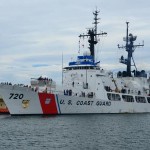 DETERRENCE: Nuclear Triad to Survive Hagel Cuts in Pentagon Spending, Elaine Grossman, Global Security Newswire, (24 February 2014)
DETERRENCE: Nuclear Triad to Survive Hagel Cuts in Pentagon Spending, Elaine Grossman, Global Security Newswire, (24 February 2014)
Sequestration concentrates funds on favored services, weapons systems, and status quo strategy—the nuclear triad, aircraft carriers, a one-and-half wars ground force. Meanwhile, a critical threat to US social stability, narcotic imports, increased 50 percent in one year due to a paltry $200 million cut to the US Coast Guard interdiction.
- Pentagon: Ground Forces Can Fight in One Theater, Support Air, Sea Forces in Another, Paul McLeary, Defense News, February 24, 2014
- DoD budget to lay-up 11 cruisers but keep all flattops, S. Fellman, Navy Times, February 24, 2014
- Coast Guard: Budget Cuts Led to 30 Percent Increase in U.S. Drug Traffic, John Grady, US Naval Institute News, February 5, 2014
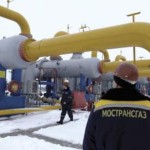 ENERGY SECURITY: Shifting Energy Trends Blunt Russia’s Natural-Gas Weapon, Steven Mufson, Washington Post (3 March 2014)
ENERGY SECURITY: Shifting Energy Trends Blunt Russia’s Natural-Gas Weapon, Steven Mufson, Washington Post (3 March 2014)
The guessing game begins, as do war scenarios and diplomatic shadow plays. Some say Russia wields enormous power due to its energy exports; others aren’t sure. Ukraine may owe Gazprom a lot of money, but Ukrainian residents don’t have to worry about paying their home gas bills. What should EU do – funnel money to Ukraine so it pays up Russia? Meanwhile, decommissioning of units 1-3 at Chernobyl is to run till 2064. Unit 4, destroyed in the 1986 accident, will take much longer.
- Ukraine crisis highlights Europe’s dependence on Russian energy, Bruce Kennedy, Moneywatch, CBS News (4 March 2014)
- Russia – the weakness of petropower, Nick Butler, Financial Times blog (2 March 2014)
- Decommissioning of Chernobyl units approaches, World Nuclear News (19 February 2014)
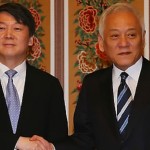 GOVERNANCE AND CIVIL SOCIETY: Opposition Bloc to Create United Coalition Party, Yonhap (2 March 2014)
GOVERNANCE AND CIVIL SOCIETY: Opposition Bloc to Create United Coalition Party, Yonhap (2 March 2014)
Popular independent lawmaker Ahn Cheol-soo will merge his newly formed New Political Vision Party with the main opposition Democratic Party before upcoming local elections, drawing criticism from voters and the ruling party that Ahn is not as committed to creating “new politics” as he claims. This may be a boost to the Democratic Party, which has seen its popularity fall over the past year.
- S. Korea to launch new opposition coalition party ahead of local elections, Xinhua (2 March 2014)
- Questions arise after party merger, Chae Byung-gun and Kang Jin-kyu, Joongang Ilbo (4 March 2014)
- Poll: 80% of Koreans disapprove of Democratic Party, Song Ho-jin, Hankyoreh (20 February 2014)
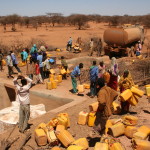 CLIMATE CHANGE ADAPTATION: Conflict, climate change and politics: why a techno-centric approach fails the resilience challenge, Simon Levine, Katie Peters and Lilianne Fan, HPG working papers, Overseas Development Institute – ODI (February 2014)
CLIMATE CHANGE ADAPTATION: Conflict, climate change and politics: why a techno-centric approach fails the resilience challenge, Simon Levine, Katie Peters and Lilianne Fan, HPG working papers, Overseas Development Institute – ODI (February 2014)
Much of what has been published within the policy sphere about the climate change–conflict link has focused on finding or disproving a causal relationship, based ‘objectively’ on statistical correlations between climate/weather and conflict, while largely ignoring political considerations. Very little, with the exception of the work of some writers, explores the political economy of climate change.
- Climate change is here now and it could lead to global conflict, Nicholas Stern, The Guardian (14 February 2014)
- A climate of conflict: the links between climate change, peace and war, D Smith and J Vivekananda, International Alert, UK (2007) [subscription required]
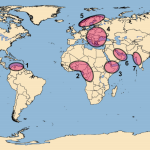 CLIMATE CHANGE AND SECURITY: Power Sharing and Risk Management in Hugh White’s ‘China Choice’, Mark Thomson, The Strategist (28 February 2014)
CLIMATE CHANGE AND SECURITY: Power Sharing and Risk Management in Hugh White’s ‘China Choice’, Mark Thomson, The Strategist (28 February 2014)
Since power sharing between China and the US is “the equivalent of a vegetarian and a carnivore attempting to share a meal”, Thomson argues Australia should “work with the United States in executing the strategy it chooses for itself.” With permanent rotations through Australia, RAND global basing studies question the Marines’ expensive shift from Japan to Guam, and advocate clustering USAF bases in 11 strategic anchors with enduring partners such as Australia.
- Should the U.S. move the Marines to Guam?, Michael J. Lostumbo, The Diplomat, (28 February 2014)
- The posture triangle: a new framework for U.S. Air Force global presence, Stacie L. Pettyjohn and Alan J. Vick, RAND (December 2013)
- New white paper urges doubling of defence spending to $50bn, Greg Sheridan, The Australian (27 February 2014)
The Nautilus Peace and Security Weekly Report presents articles and full length reports each week in six categories: Austral security, nuclear deterrence, energy security, climate change and security, the DPRK, climate change adaptation and governance and civil society. Our team of contributors carefully select items that highlight the links between these themes and the three regions in which our offices are found—North America, Northeast Asia, and the Austral-Asia region.
- Subscribe to NAPSNet to receive free weekly email reportsEditor
Contributors:
- Deterrence: Peter Hayes
- Governance and Civil Society: Dyana Mardon
- Energy Security: Nikhil Desai
- Climate Change Adaptation: Saleem Janjua
- DPRK: Roger Cavazos
- Austral Peace and Security: Richard Tanter

